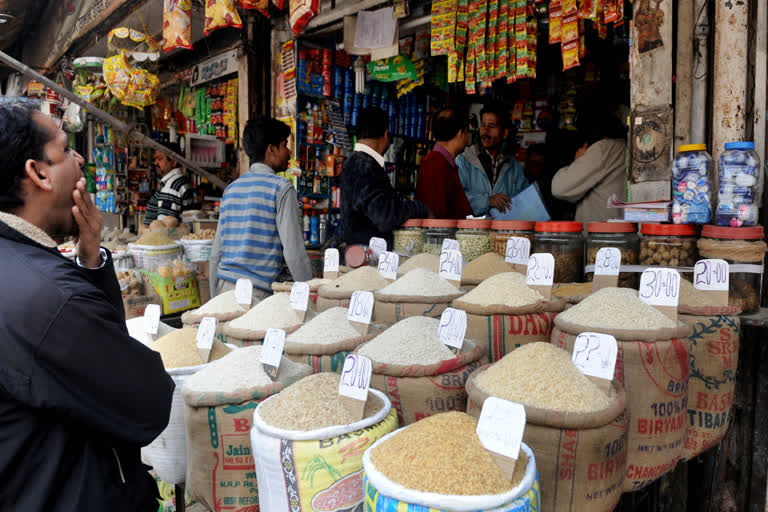Hyderabad: Sarita, a homemaker in her late 50s who has been living at a prominent residential area in New Delhi for the last 35 years, has been ordering her household groceries from the same kirana store in the neighbourhood for all these years. The bi-weekly visits to the store were a routine for her family from late 1980s till almost 2010, after which the popularly growing concept of ‘home delivery’ changed the way the shop started delivering goods to its customers.
But the biggest transformation happened just recently, after a nationwide lockdown was imposed across India towards the end of March 2020 in the wake of the coronavirus pandemic. Since then, Sarita has been placing her order on the Whatsapp number of the same kirana shop, availing contactless delivery of goods, getting the details of her bill on a digital ledger mobile app on her smartphone and settling her payments digitally. In short, everything has changed.
This flexibility and adaptability, especially in the times of the Covid-19 pandemic, has helped India’s kirana stores, also known as the local mom-and-pop stores, get a new lease of life and reinforce their position as the backbone of the country’s $700 billion retail sector despite the emergence of e-commerce giants like Amazon and Flipkart and super market chains like Big Bazaar and D-Mart.
A recent Ernst and Young survey highlighted that there is renewed interest in local kirana stores as consumers who would earlier shop online or from supermarkets are now preferring to buy from the local stores to avoid long queues and also there is a semblance of ‘trust and traceability’. Another survey by Deloitte found that majority of the consumers in India want to buy from locally sourced items going forward, which reflects the trust built by kiranas during the lockdown.
Praveen Khandelwal, national secretary general of Confederation of All India Traders (CAIT), an industry body that represents 60 million traders and 40,000 trade associations, said: “Consumers are happier with their neighbourhood shops going digital since they maintain a long trust and mutual relations with their nearby stores. Their absence on digital portals had forced the consumers to shift to other technology-enabled portals. But now, since their own stores have adopted the same format, the consumers are happier to buy from traders instead of big e-portals.”
Why the lag?
It’s not that digitization of kirana stores is a new concept, but just like ‘work-from-home’, the urgency to adopt the technology became the need of the hour in the aftermath of the coronavirus outbreak. Also, with GST (goods and services tax) and the movement to digital payments, store owners started realizing that the technological shift is now imperative for survival.
“We should not forget that people in the age bracket of 18-40 years are the real consumers and since they have paucity of time they will always prefer to purchase online and make payment digitally. Keeping in view of the demand of real consumers, the traders will have to digitalize,” Khandelwal said.
Still, despite what seems so obvious, the shift to modern trade platforms has been slow. Retail conglomerates, for years, have been trying to take kirana stores on board to grow their e-commerce business as they understand the strength of these local shops. Kirana stores will not only help these big retailers penetrate deep into markets inaccessible till now, but also help in cheaper last-mile delivery in a country where logistics is a key cost component.
No wonder, India’s most valued firm Reliance Industries Ltd (RIL) chose the humbler mom-and-pop shops as partners to create the world’s largest online-to-offline e-commerce platform in the form of JioMart. An online-to-offline (O2O) business platform is where customers place an order online, but purchases the products offline (nearest local retail stores).
Read more:Consumer confidence in India improves in July: Report
The company is looking at installing its Jio mobile point-of-sale (MPoS) device at local kirana stores at a one-time cost of Rs 3,000 to connect them to its high-speed 4G network that can be used by its customers to order grocery supplies. In return, kirana stores would have to source their stocks exclusively from Reliance Retail.
The service is being offered in all leading metros (Mumbai, Delhi, Bengaluru and Kolkata), and even in smaller towns like Mysuru, Bhatinda and Dehradun.
